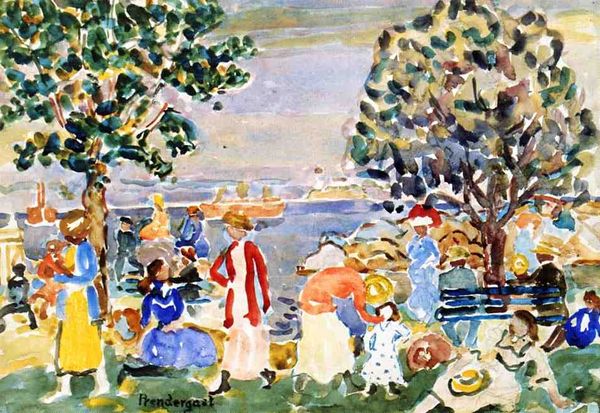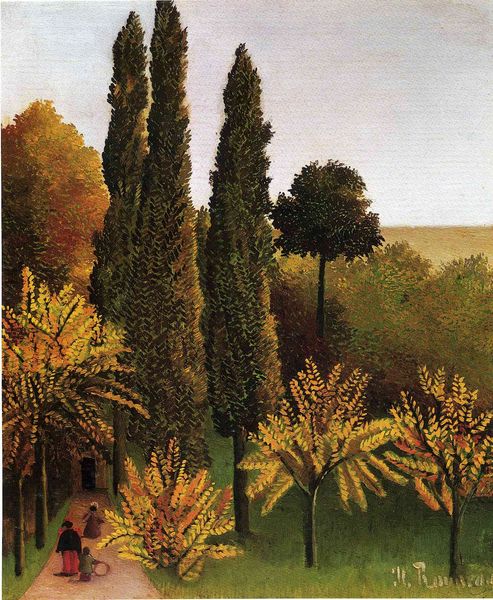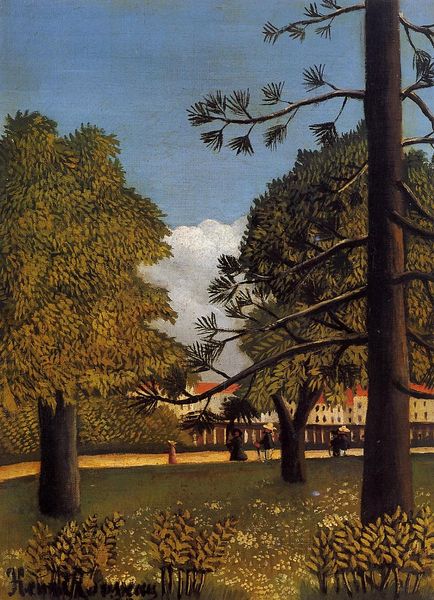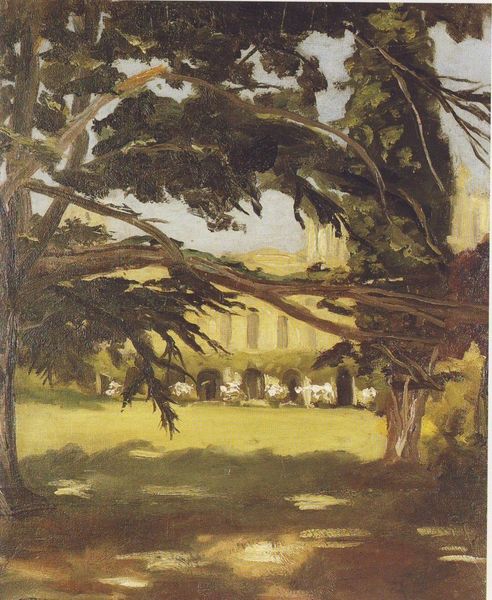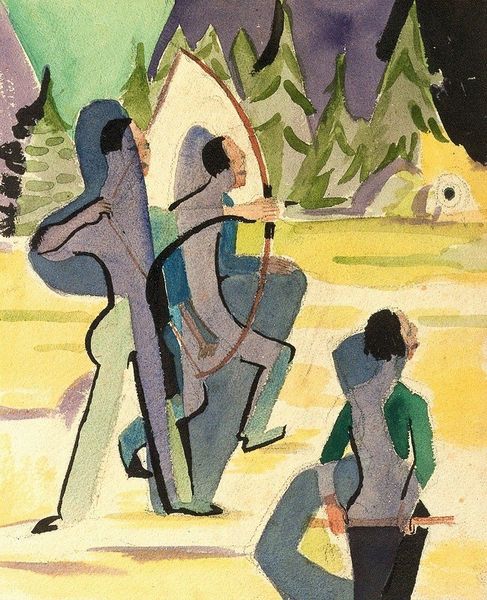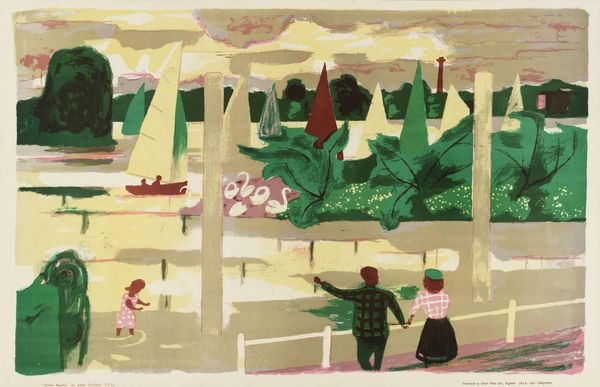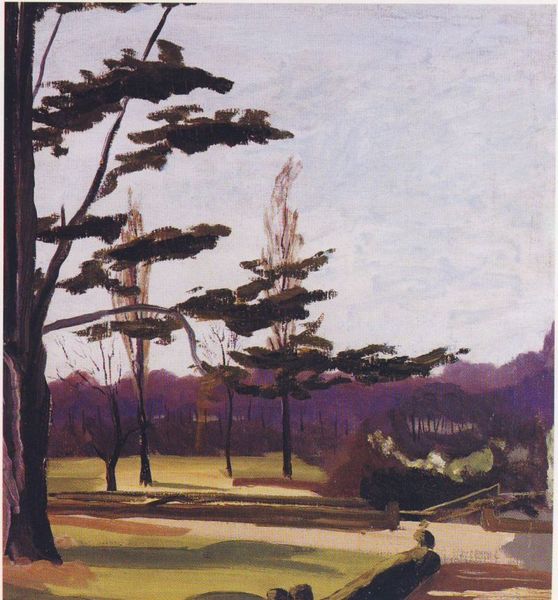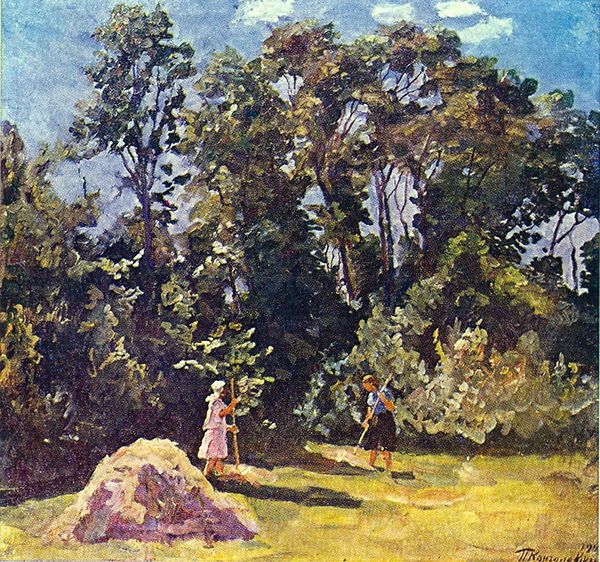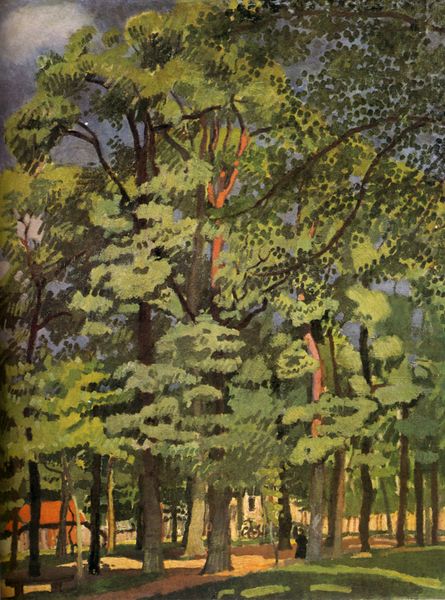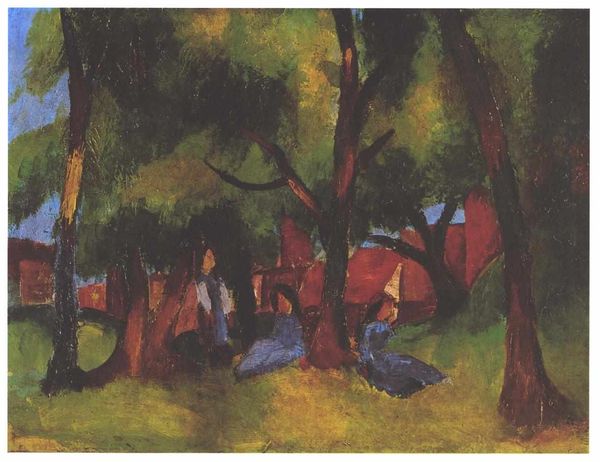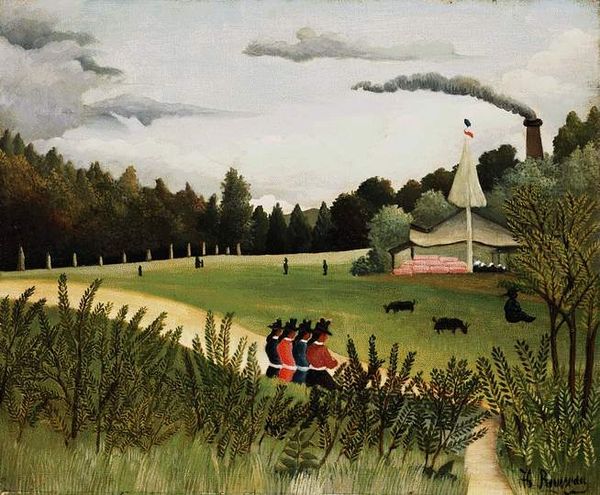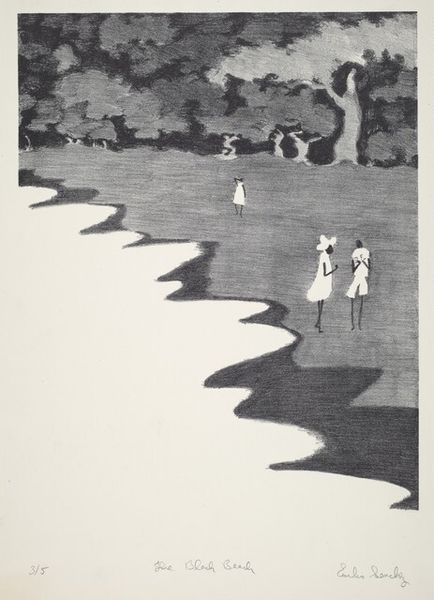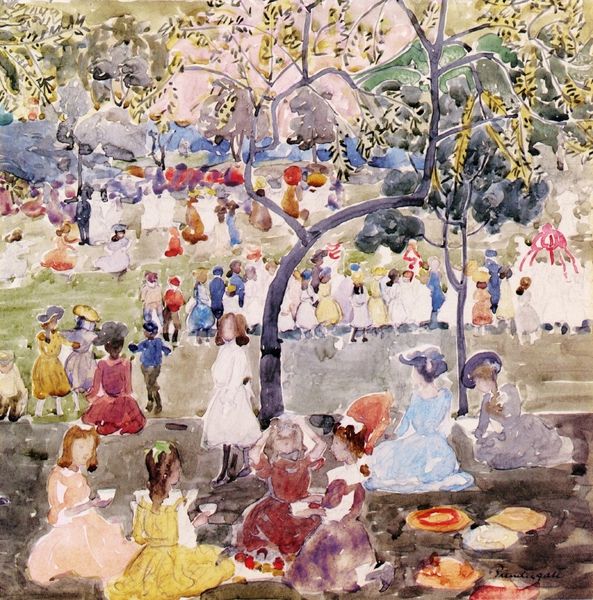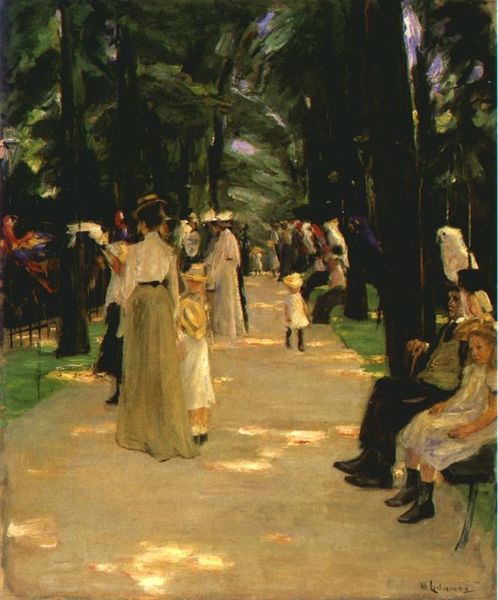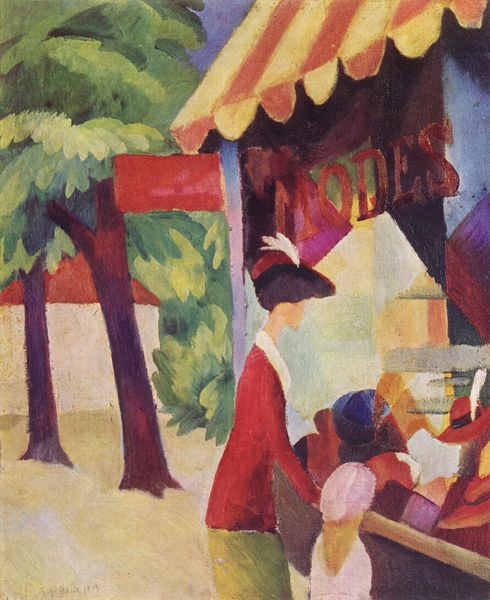
Copyright: Fairfield Porter,Fair Use
Curator: Looking at Fairfield Porter's "July" from 1971, an oil painting depicting a group of people relaxing in a summery landscape, it's remarkable how he captures a particular kind of American leisure. Editor: It's a scene of such casual ease, and I wonder, how does this seemingly simple scene connect to larger societal conversations happening at that time? Curator: Exactly! Porter painted this during a period of significant social upheaval – the Vietnam War protests, the burgeoning feminist movement, the fight for Civil Rights. Considering this, is this painting an endorsement of the privileges of the elite, or can it be read as a commentary on it? Note that Porter himself came from a wealthy background, but identified as a socialist. Editor: That’s a sharp contrast. So the painting perhaps doesn't simply represent leisure, but perhaps *complicates* it. Curator: Precisely. Who gets to enjoy this kind of peace and quiet, and at whose expense? The composition is almost deliberately isolating. The figures are grouped, but each seems in their own world, unaware, or perhaps deliberately so, of the political unrest outside this verdant lawn. What about the role or the absence of people of color here? Editor: It’s like this idyllic scene is consciously turning away from realities for many people, a bubble of tranquility purchased through something else…it’s a great observation. Thank you. Curator: My pleasure. It shows us that even seemingly quiet domestic scenes can be loaded with social and political meaning, if we choose to look closer. Editor: Absolutely. I'll definitely keep these points in mind when examining artworks in the future.
Comments
No comments
Be the first to comment and join the conversation on the ultimate creative platform.
